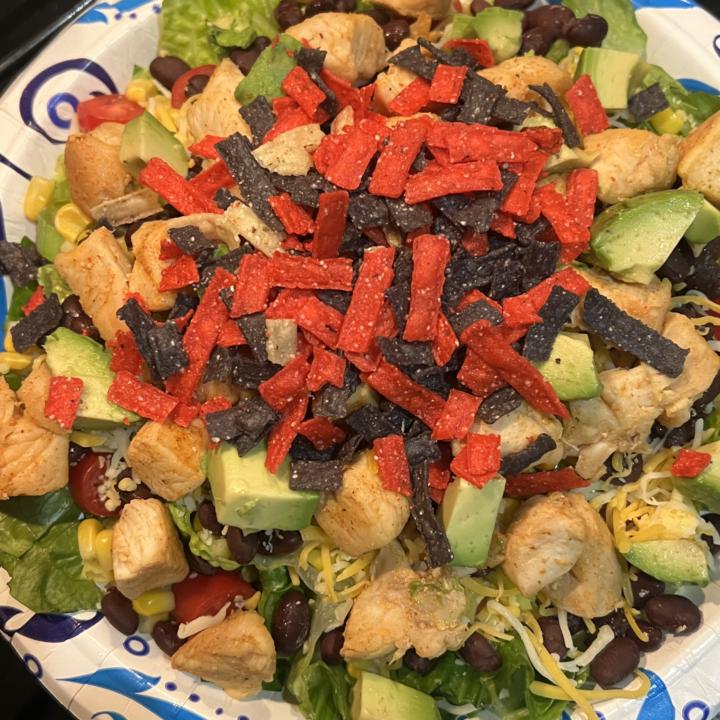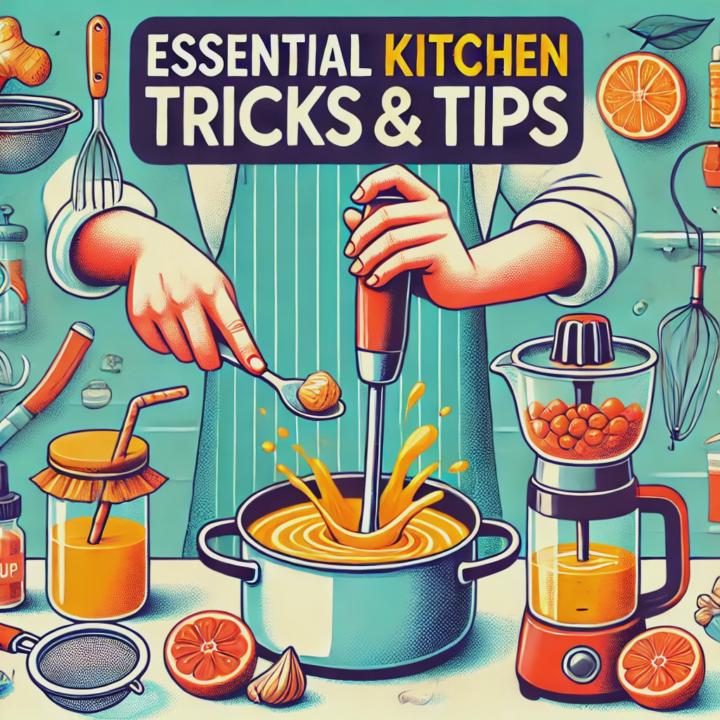Activity
Mon
Wed
Fri
Sun
Jan
Feb
Mar
Apr
May
Jun
Jul
Aug
Sep
Oct
Nov
Dec
What is this?
Less
More
Memberships
The Home Cook Club
109 members • Free
4 contributions to The Home Cook Club
🥗 Southwest Chicken Salad Recipe – Easy, Flavorful & Perfect for Summer! 🌽🔥
Hey Home Cooks! 👋If you’re looking for a southwest chicken salad recipe that’s fast, fresh, and full of flavor, this one is a favorite in my house—especially on busy nights or hot summer days! Here’s exactly what I used to make it: 📝 Southwest Chicken Salad Ingredients: - Romaine lettuce (chopped) - Cherry tomatoes (halved) - Cooked chicken breast, seasoned with Cajun spice - Green onions (sliced) - Corn (frozen, thawed, canned or roasted) - Black beans (rinsed and drained) - Shredded Colby Jack cheese - Tortilla strips (for crunch!) - Hidden Valley Chipotle Ranch dressing - Optional: Avocado slices (I added them to mine but left them off my husband’s—he’s not a fan 😉) - ✅ This southwest chicken salad is great for meal prep, a light dinner, or a quick lunch. You can make it your own by swapping in different dressings, adding jalapeños for extra heat, or using grilled chicken for a smoky twist! 💬 If you try this, let me know what you think—or share your own version of a southwest chicken salad recipe in the comments! #SouthwestChickenSaladRecipe #HomeCookClub #QuickAndEasyMeals #SimpleDinnerIdeas #FreshSalads #HealthyRecipes

Gadget Gold or Gimmick? 🤔
Have you ever bought a kitchen gadget that totally changed your life—or turned out to be a waste of money? Share your best and worst kitchen tool purchases!
Mastering the Kitchen: 10 Essential Tips and Tricks
Stepping into the kitchen can be both exciting and daunting, whether you're a seasoned chef or a culinary novice. To enhance your cooking experience and boost your confidence, here are ten indispensable kitchen tips and tricks: 1. Peel Ginger with a Spoon: Ginger's knobby surface can be challenging to peel with a knife. Instead, use the edge of a spoon to scrape off the skin. This method follows the root's contours, minimizing waste and making the process safer. 2. Invest in an Immersion Blender: An immersion blender is a versatile tool that simplifies tasks like puréeing soups directly in the pot, blending sauces, and making quick emulsions such as mayonnaise or hollandaise. It's easier to clean than traditional blenders and saves time. 3. Keep a Small Strainer Handy for Citrus: When adding citrus juice to dishes, seeds can be a nuisance. Keep a small handheld strainer nearby to catch seeds while allowing the juice to flow through, ensuring a smooth and seed-free addition to your recipes. 4. Organize Your Prep Station Efficiently: A well-organized prep station enhances efficiency and safety. Keep necessary tools within reach, designate specific areas for different tasks, and maintain a clean workspace to streamline your cooking process. 5. Use Squeeze Bottles with Built-in Recipes: Simplify your condiment preparations by marking squeeze bottles with measurement lines for ingredients like oil, vinegar, and seasonings. This hack allows for quick mixing of dressings and sauces without the need for additional measuring tools. 6. Pre-Juice Lemons for the Week: Save time during busy weekdays by juicing lemons in advance. Store the juice in a sealed container in the refrigerator, providing you with fresh lemon juice ready for recipes, beverages, or dressings throughout the week. 7. Maintain Sharp Knives: Sharp knives are safer and more efficient. Regularly hone your knives using a honing rod and invest in a quality knife sharpener. A well-maintained knife requires less force and reduces the risk of accidents. 8. Clean as You Go: To prevent a daunting cleanup after cooking, adopt the habit of cleaning as you go. Wash utensils and cutting boards immediately after use, wipe down surfaces regularly, and keep a trash bowl nearby to collect scraps. 9. Use a Rolling Pin for Even Dough: When rolling out dough for pastries or pizzas, use a rolling pin to achieve an even thickness. This ensures consistent cooking and prevents undercooked or overcooked spots in your baked goods. 10. Taste and Season as You Cook: Develop the habit of tasting your dishes at different stages of cooking. This practice allows you to adjust seasoning incrementally, resulting in a well-balanced and flavorful final product.

The Easiest Tastiest Garlic Bread (Toast)
For years I've toasted garlic bread under the broiler. Then, the other day I decided to try a something new and it WORKED! Instead of the broiler, I used the toaster! It was so much easier, had better texture, less mess and clean up. Not sure why I hadn't thought of this before. LOL! Here's how I make garlic butter: Melt 4 tbsp butter in a small frying pan over low heat. Once melted add 1 tsp fresh or jarred minced garlic. Allow to simmer very slowly 1-2 minutes (do not let the garlic brow). Then dip your toasted bread in the butter mixture. Easy Peasy and YUM! Give it a try and let me know what you think in the comments. #bestgarlicbread #kitchenhack
1-4 of 4
@steven-dawson-9773
I am the father of two magnificent daughters. I now need to learn how to cook as well as they do.!!!!
Active 173d ago
Joined Mar 26, 2025
Powered by


